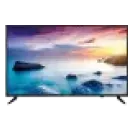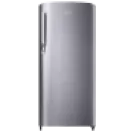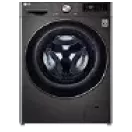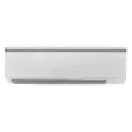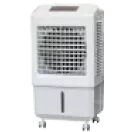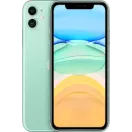Hard water contains high levels of minerals like calcium and magnesium, which are absorbed as water flows through soil and rock. While safe for consumption, hard water can cause serious issues for
geysers and other household appliances. When heated, the minerals form limescale deposits inside the geyser tank and on the heating elements, reducing efficiency, and increasing energy usage. Over time, this buildup leads to corrosion, frequent repairs, and a shorter lifespan. Choosing a geyser specifically designed to handle hard water ensures reliable performance, energy efficiency, and long-lasting durability.
How does hard water damage a geyserHard water significantly impacts the efficiency and lifespan of a geyser due to its high mineral content, primarily calcium, and magnesium. When heated, these minerals settle as limescale deposits on the heating element and the inner walls of the geyser tank. Over time, this buildup reduces the heating efficiency, forcing the geyser to consume more energy to heat water.
In
kitchen geysers, hard water deposits can clog small pipes, leading to slower water flow and increased wear on components. For
electric water geysers, limescale insulation on the heating element prevents even heating, which shortens the lifespan of the appliance. If left unchecked, these deposits can cause overheating, leaks, and eventual damage to the geyser. Opting for geysers designed with anti-corrosion tanks and protective heating elements helps mitigate these issues, ensuring long-term durability and efficient performance.
Factors to choose geysers for hard water
- Anti-corrosion tank: Geysers with glass-lined or stainless steel tanks resist limescale buildup and prevent rusting caused by hard water minerals. This enhances the durability and lifespan of the appliance.
- Protective heating element: Opt for heating elements with glass or enamel coating, as they prevent mineral deposits from forming. This ensures efficient heating and reduces energy consumption.
- Sacrificial anode rod: Geysers with a magnesium anode rod help neutralise minerals in hard water, protecting the tank from corrosion and extending its lifespan.
- Hard water compatibility: Look for models specifically designed for hard water regions, featuring anti-scale technology and built-in filtration systems to reduce mineral buildup.
- Capacity and usage: Select a geyser with the right capacity (10–25 litres) based on your family size and usage requirements. Hard water can require higher capacity models for optimal performance.
- Regular maintenance features: Some geysers come with easy-to-maintain designs that simplify descaling and cleaning. This helps minimise the impact of hard water deposits.
How to maintain a geyser’s health
- Regular descaling: Hard water leaves mineral deposits that can reduce efficiency. Periodic descaling helps remove limescale build up from the tank and heating element, improving performance.
- Install a water softener: A water softener or pre-filter reduces the mineral content in hard water, preventing limescale accumulation and protecting the geyser components.
- Inspect the anode rod: The sacrificial anode rod inside the geyser protects against corrosion. Check it every 6-12 months and replace it if worn out to extend the tank’s lifespan.
- Temperature regulation: Avoid setting the temperature too high, as excessive heat accelerates mineral deposits. Maintain an optimal temperature to balance efficiency and longevity.
- Regular servicing: Schedule professional maintenance checks to clean and inspect the geyser components. This helps identify issues early and ensures smooth operation.
- Drain the tank periodically: Empty the geyser tank every few months to flush out sediments and debris, ensuring efficient water flow and heating performance.
Maintaining a geyser in hard water conditions is essential for ensuring long-term efficiency and durability. Regular descaling, proper maintenance, and the use of water softeners can help prevent limescale build-up and corrosion. Choosing geysers equipped with anti-corrosion tanks, protective heating elements, and hard water-compatible features is crucial for optimal performance. With the right care and smart choices, you can extend your geyser’s lifespan and enjoy an uninterrupted hot water supply for years.
If you are looking to switch to a geyser that can handle hard water, you can visit one of Bajaj Finserv’s partner stores, select the geyser of your choice and convert the cost into Easy EMIs. You can choose to repay it in a convenient tenure of up to 60 months. This financing solution from Bajaj Finserv is available on 1 million products.
Explore water heaters for hard water on EMI with Bajaj Finserv
Discover an extensive range of the
best 5 star geysers designed specifically for hard water conditions on
Bajaj Mall. These geysers are equipped with features like anti-corrosion tanks, protective heating elements, and energy-efficient technology to ensure seamless performance and durability. With Easy EMI options offered by Bajaj Finserv, upgrading to a reliable and efficient water heater is now budget-friendly and hassle-free.
Benefits of shopping with Bajaj Finserv financing options
- Affordable pricing: Access competitive prices on water heaters for hard water through Bajaj Finserv partner stores.
- Easy EMIs: Bajaj Finserv’s financing options allow you to purchase your water heater without any financial strain.
- Zero down payment: Selected models are available with no upfront costs, making your purchase stress-free.
- Wide selection: Choose from a variety of water heaters designed to handle hard water conditions efficiently.
- Exclusive offers: Avail exciting cashback deals and discounts when shopping.
- Complimentary delivery: Enjoy free home delivery on eligible models for a hassle-free shopping experience.
